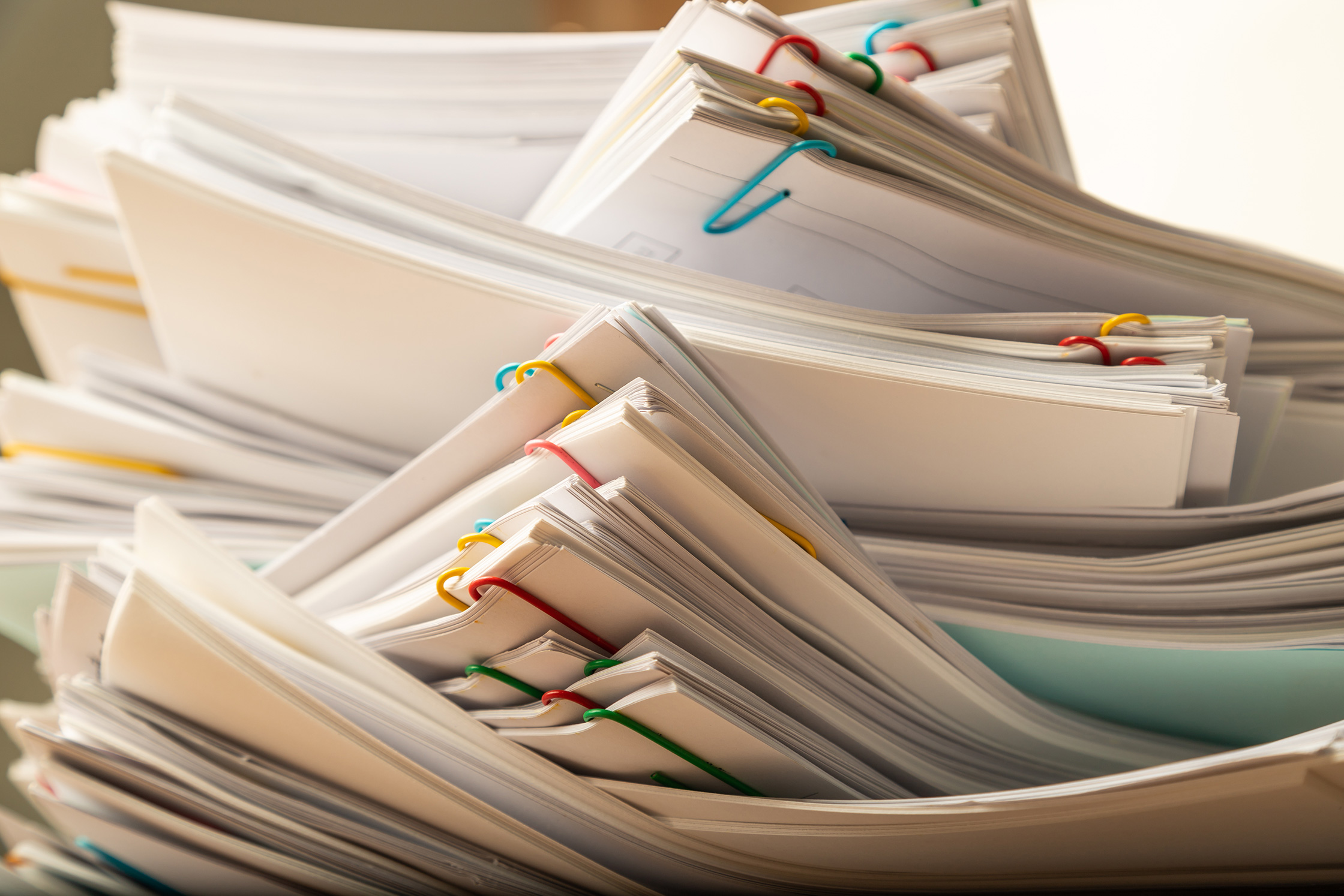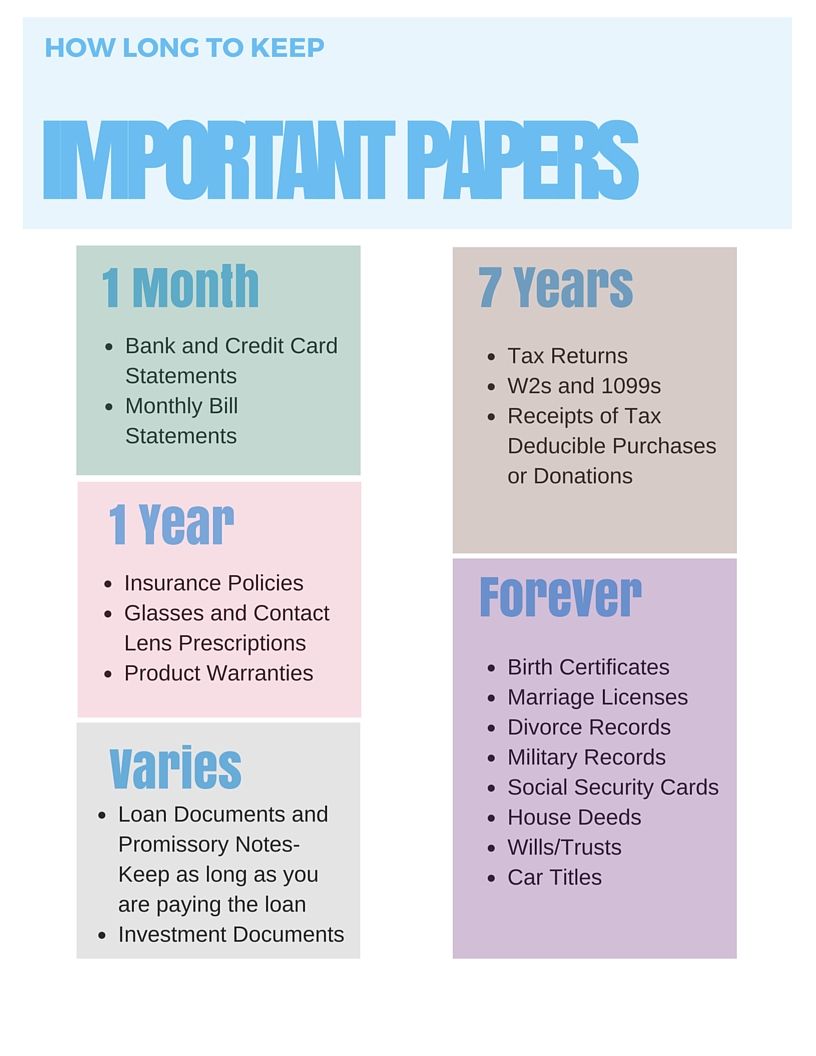How Long Should You Keep Estate Paperwork?

Managing estate paperwork can often seem like a daunting task, especially during the emotional time following the passing of a loved one. Deciding how long to keep estate documents is crucial, not only for honoring the deceased's wishes but also for legal and financial reasons. This comprehensive guide will delve into the intricacies of estate documentation, providing insights into retention periods, the nature of documents involved, and strategies to ensure you're never overwhelmed.
Understanding Estate Documents

Estate paperwork encompasses various types of documents. Here’s a quick overview:
- Wills and Trusts: These are central to estate planning, determining how assets are distributed.
- Power of Attorney: Grants someone the authority to act on behalf of the estate owner in financial and legal matters.
- Advance Directives: Includes living wills and medical power of attorney, specifying medical treatment wishes.
- Tax Returns and Financial Statements: Important for both the estate and beneficiaries for tax filings and financial tracking.
- Insurance Policies and Beneficiary Forms: Essential for asset distribution and financial security post-mortem.
- Property Titles: Legal documents proving ownership of real estate.
- Legal Agreements: Such as prenuptial agreements that can impact asset distribution.
- Funeral Instructions: Details on how the estate owner wishes to be honored in their final journey.
General Guidelines for Keeping Estate Documents

Here are some general recommendations for document retention:
| Document Type | Retention Period |
|---|---|
| Wills and Trusts | Permanently or until replaced |
| Power of Attorney | Until death or revocation |
| Advance Directives | Until death or revised |
| Tax Returns and Financials | 7 years |
| Insurance Policies | While policy is active, plus 1 year |
| Property Titles | Permanently |
| Legal Agreements | Indefinitely or until legally terminated |
| Funeral Instructions | Until after the funeral |

💡 Note: Always consult with a legal advisor for personalized estate planning advice, as laws can vary by jurisdiction.
How Long Should You Keep These Documents?

Let’s delve into specific retention periods for various estate documents:
Wills and Trusts

Wills and trusts should be kept indefinitely, or until a new document is created to replace them. However, executors or trustees should retain original copies, while beneficiaries might keep copies for reference.
Power of Attorney

The original Power of Attorney should be kept by the appointed agent or representative until the death of the principal or the document’s revocation. A copy should also be retained by the principal as long as it’s in effect.
Advance Directives

These documents are vital for ensuring an individual’s medical wishes are followed. They should be kept until the person’s death or until they are revised due to changing health circumstances.
Tax Returns and Financial Documents

The IRS allows for three years after the filing date for tax audits but retaining these documents for seven years is advisable. This ensures you have records in case of any late discoveries or disputes.
Insurance Policies

Keep all insurance policies active or recently lapsed for at least one year after their termination. Beneficiaries might need to present these to claim benefits.
Property Titles

Property titles should be kept indefinitely, as they are the definitive proof of ownership.
Legal Agreements

Legal agreements like prenuptial or marital property agreements should be retained for as long as they are legally binding or until formally terminated.
Funeral Instructions

Keep these until after the funeral to ensure the deceased’s wishes are honored.
Managing Estate Paperwork Effectively

Here are some tips to manage estate paperwork efficiently:
- Digitize Documents: Scan and store documents digitally to reduce physical storage needs.
- Secure Storage: Use fireproof safes or secure storage facilities for critical documents.
- Organized Filing: Implement a systematic filing system for easy retrieval.
- Regular Review: Periodically review and update documents, especially after significant life events.
🔒 Note: Digital copies are convenient, but original documents may be necessary for legal purposes.
Conclusion

In summary, managing estate paperwork is an integral part of estate planning and administration. Understanding how long to keep various estate documents not only helps in fulfilling legal requirements but also in ensuring that the wishes of the deceased are honored. By keeping these documents safely and organizing them well, you provide peace of mind for yourself and your heirs. Remember, while these guidelines provide a general framework, your specific needs might differ, and consulting with a legal professional for tailored advice is always recommended.
What should I do if I find outdated estate documents?

+
Shred or securely dispose of outdated estate documents. However, it might be wise to keep a record of the existence of the document for historical reference.
Can digital copies of estate documents replace originals?

+
While digital copies can be used for reference, originals are often required for legal proceedings. Digital copies serve as backups.
How can I ensure that my estate documents are secure?
+Use a fireproof safe, a safe deposit box at a bank, or secure digital storage solutions with encryption. Informing your executor or attorney where to find these documents is also crucial.



